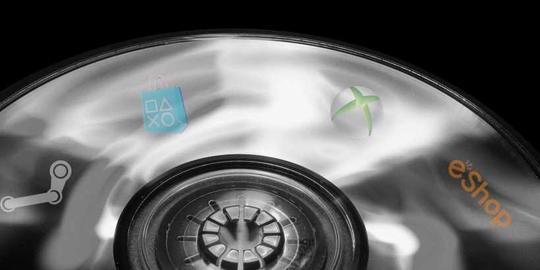
With the rise in popularity of digital video game releases over the past decade, a new trend is emerging in the gaming industry: diskless consoles and digital-only releases. Forthcoming titles like Like a Dragon Gaiden and Alan Wake 2 are already adopting this approach, drawing mixed reactions from the gaming community. While some gamers still cherish physical discs and cartridges, game developers are increasingly seeing the benefits of digital-only releases. But does this mean the end of physical formats in gaming? The answer is not as straightforward as it might seem.
Why Game Developers Prefer Digital-Only Releases

The move towards digital-only releases comes with some significant advantages for game developers. In an interview with Eurogamer, Sam Lake and Kyle Rowley from Remedy Entertainment shared how digital-only releases allow developers more time to refine their games. Without the need to print and ship physical copies, developers can devote more time to bug fixes and improvements right up until the game's launch. Furthermore, digital releases enable game developers to sell their games at a lower price compared to traditional triple-A titles, making them more accessible to a wider audience.
Averting Disastrous Launches with Digital-Only Releases
Another compelling reason for the shift to digital-only releases is the increasing number of botched game launches in recent years. Examples of this include the launches of Cyberpunk 2077, Pokémon Scarlet and Violet, and Redfall, all of which were plagued with bugs and other issues. While these games later recovered through patches and updates, their initial state at launch tarnished their reputations and let down their fans. With the extra time afforded by digital-only releases, developers can avoid these disastrous launches and deliver a more polished product on day one.
The Declining Relevance of Physical Copies

While the trend toward digital-only releases is relatively new, its benefits are clear. Games like Animal Crossing: New Horizons and No Man's Sky, which require regular updates to deliver the full gaming experience, highlight the diminishing relevance of physical media in the gaming industry. This is particularly true for live-service games and online-only titles, which rely mainly on servers rather than on-disc content. Physical copies for these games are increasingly seen as redundant, particularly when servers are shut down, rendering the games unplayable.
The Downside of Digital-Only Releases
Despite the many advantages of digital-only releases, they also come with their own set of challenges. For one, purchasing a digital game only provides a digital license linked to the buyer's account, meaning if the account is lost, so are all the games associated with it. In contrast, physical games can be installed without an internet connection, allowing full ownership of the copy, the ability to use the game with different accounts and consoles, and the option to resell the game. Moreover, physical copies play a crucial role in preserving video games. As consoles age and digital storefronts shut down, digital games are at risk of becoming inaccessible, potentially lost to history. In contrast, physical games can be stored and preserved more easily.
A Possible Compromise: Delayed Physical Releases
A potential solution to the challenges posed by digital-only releases could be a delayed physical release. Developers could initially release the game digitally, giving them the extra time they need to refine the game, while the physical release could follow once the game is polished. However, this solution would mean fans preferring physical copies would have to wait longer for new releases. Furthermore, it could pave the way for developers to cancel planned physical releases if the initial digital sales don't meet their expectations.
In conclusion, while the shift toward digital-only releases comes with its own challenges, it seems that the gaming industry is gradually moving in this direction. The benefits in terms of development time and cost are clear, but the trade-off in terms of physical ownership and historical preservation can't be ignored. It's clear that the industry needs to find a balance that satisfies both developers and gamers. With physical releases still very much in demand, there's still time for the industry to find the middle ground.
